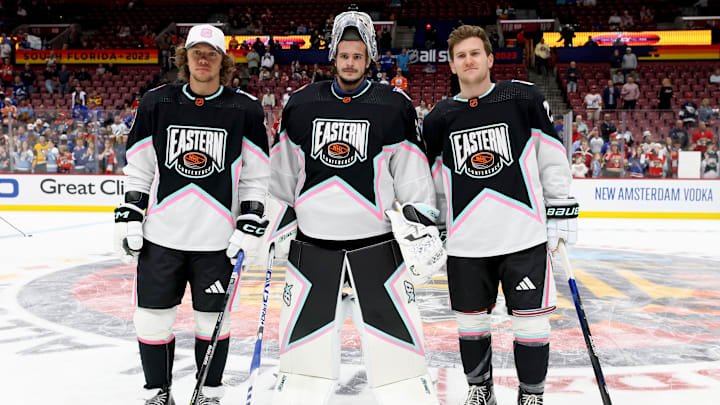During the summer months there isn't a lot going on in the NHL post free agency, and for that reasons analysts often look to talk about the business side of the league. Each summer The Athletic publishes a set of stories which evaluate the best and worst deals in hockey, and then follows it up with a league wide view of how each team has spent their cap dollars. The New York Rangers are a team that has never been afraid of throwing money around, and at this time last year they were in pretty good shape. The same can't be said this time, as they've plummeted in the rankings, and there's no telling if they will be able to rebound quickly.
In Dom Luszczyszyn's piece he had the Rangers ranked 24th out of the 32 teams, a massive drop from the No. 6 spot the occupied in 2024. As for why the Rangers dropped, it all has to do with the age of the team, and some recent contracts carrying a significant negative surplus value.
The two biggest deals in question are Will Borgen's recent extension and Igor Shesterkin's, although it was noted that there's a good chance he will bounce back and his contract won't look as onerous. There's also the fact that Artemi Panarin, Mika Zibanejad, and J.T Miller are some of the team's highest paid players, and they are older and have all likely played their best hockey.
As players age their play tends to decline, and their overall efficiency in context to their contract impacts their total "value". The volume of players and contracts hurts the team, and you can see below which deals are the most problematic.
— Hockey Pictures (@HockeyCharts1) August 8, 2025
Adam Fox's deal is one of the best in the league, and he currently provides the team $18.1 million in surplus value. He only makes $9.5 million a season for four more years, but right now he is playing like a $14 million player.
On the flip side, Borgen signed a deal that pays him $4.1 million for five years, but he is currently worth $1.4 million a season so that carries a negative surplus of $13.4 million. The next worst contract after that is Mika Zibanejad, currently making $8.5 million but only worth $6.2 million, and the five additional years on his deal weigh heavily.
The main takeaway here is that while the Rangers have a net negative surplus of $21 million, there is room for improvement. If players like Alexis Lafrenière, Panarin, Zibanejad, and Shesterkin play at a level they are capable of, the majority of current negative value will decrease. It is also important to remember that this is just one way of looking at and evaluating the team, but it certainly brings new perspective on how every dollar counts when trying to build a championship hockey team.
